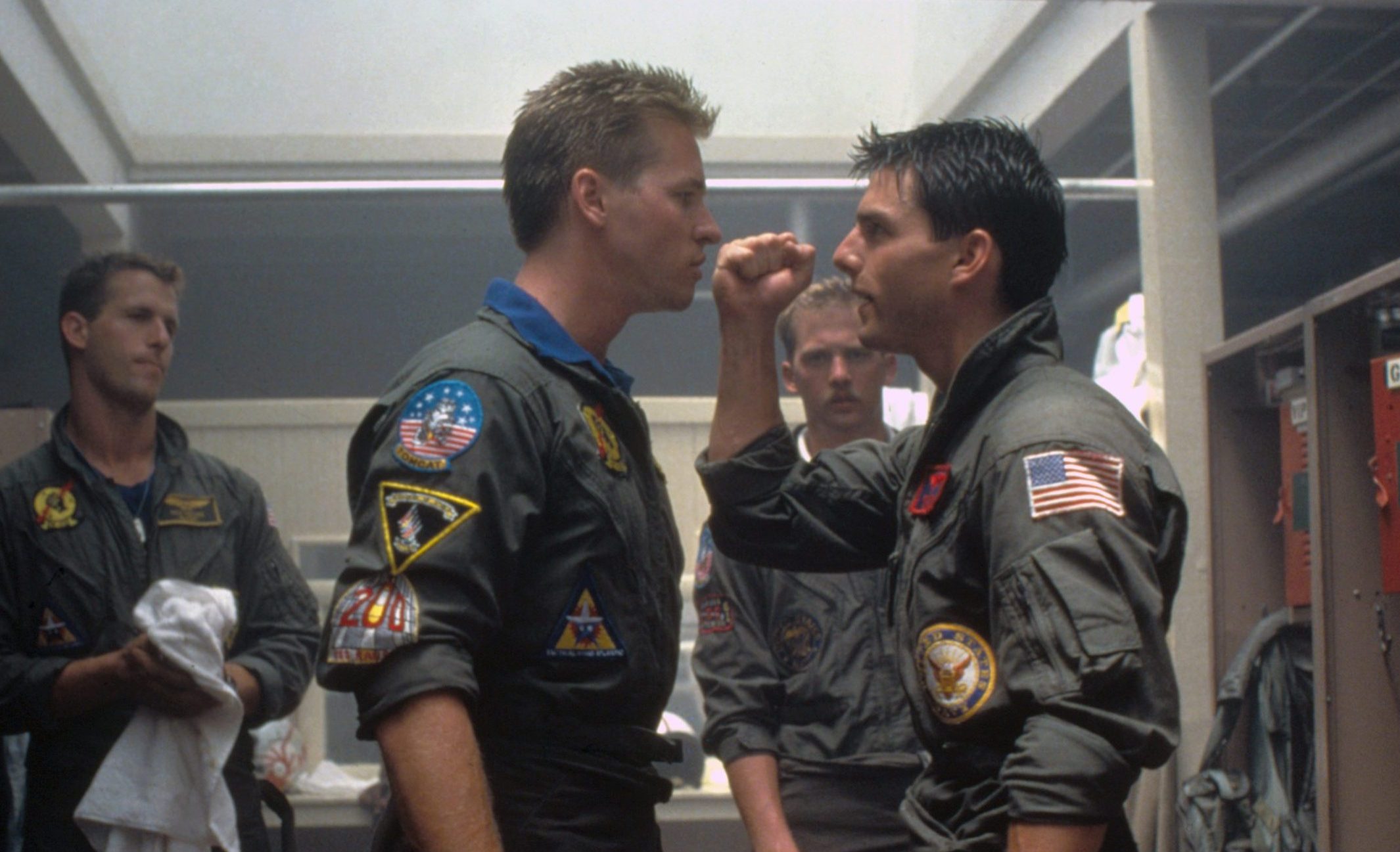Power of Support During a Health Challenge
- “Top Gun” actors Tom Cruise, 62, and Val Kilmer, 64, forged a friendship while filming their iconic movie in the ‘80s. They’ve supported each other over the years through Kilmer’s cancer battle and other life milestones, including birthdays.
- Kilmer’s acting career was impacted when he was diagnosed with throat cancer after discovering a lump in his throat and coughing up blood.
- For treatment, Kilmer underwent a tracheotomy (surgery that creates an opening in the neck for a tube to be inserted into the windpipe, helping him breathe). He also received chemotherapy.
- Patients are encouraged to seek out a support group, talk to a mental health professional, and keep their support team connected with their care team.
“Top Gun” actor Tom Cruise turns 62 this year, and among those wishing him a happy birthday includes his long-time friend and co-star from their iconic 1986 movie, Val Kilmer.
Despite his health battles, Kilmer has consistently extended his warm wishes to Cruise on his birthday, a tradition that has continued for several years. According to Entertainment Tonight (ET), Cruise and Kilmer’s friendship blossomed during “Top Gun” filming.


Expert Resources on HPV
- Busting the Myths About the HPV Vaccine
- A Reminder About HPV-Linked Cancers From Survivor & ‘Desperate Housewives’ Actress Marcia Cross
- Breaking: HPV Vaccine Not Recommended For Adults Over 26, Per New American Cancer Society Guidelines
- A Major New Effort Announced to Vaccinate Young Boys Against HPV and Cancers Linked to Sex
Building Support, Staying Connected
Kilmer had an army of supporters encouraging him along his cancer journey while he battled throat cancer. Cruise was among that army of support.
After battling cancer, Kilmer’s triumphant return to acting for the sequel of “Top Gun” caused Cruise to cry. According to Variety, the return was “pretty emotional,” as Cruise once described it on Jimmy Kimmel Live.
If you were recently diagnosed with cancer, you likely know about the wide range of emotions that news can bring. This is one of the most difficult phases of the cancer journey to overcome.
WATCH: Seeking support after a diagnosis.
However, a team of supporters can be most useful during these early stages. Your supporters can be close family members and friends or people from outside your inner circle.
“Some people don’t need to go outside of their family and friends circle. They feel like they have enough support there,” New York-based psychiatrist Dr. Lori Plutchik tells SurvivorNet.
“But for people who feel like they need a little bit more, it is important to reach out to a mental health professional,” she added.
Val’s Cancer Journey
Kilmer was diagnosed with throat cancer in 2014 after discovering a lump in his throat. Although he did not immediately go to the doctor to get checked out, waking up in a pool of blood was the last bit of motivation he needed to go to the hospital.
Throat cancer is cancer that develops in your throat or voice box.

“[Throat] cancer can cause symptoms in the throat including sore throat, pain with swallowing, difficulty swallowing, the sensation of a lump or mass in the throat, ear pain, and less commonly voice changes, hoarseness or difficulty opening the jaw,” Dr. Ryan Hughes, a radiation oncologist at Wake Forest School of Medicine, told SurvivorNet.
“In the majority of patients, [throat cancer] does not cause symptoms in the throat but instead first presents with an otherwise asymptomatic mass in the neck,” Dr. Hughes added.
Kilmer underwent chemotherapy to help treat the cancer. He also underwent a tracheotomy procedure, which had an impact on his ability to speak. This procedure connects the windpipe to a hole in the front of your neck.
Interestingly, the actor continued working on production projects using artificial intelligence technology despite the tracheotomy’s impact on his voice. Sonantic created the technology, which used samples of Kilmer speaking to recreate his speech patterns.
Since undergoing treatment for throat cancer, Kilmer said in his memoir that he has healed.
Oral Cancers are Commonly Linked to HPV
The human papillomavirus (HPV) is “a group of more than 200 related viruses, some of which are spread through vaginal, anal or oral sex,” the National Cancer Institute says.
HPV infection is linked to multiple cancers, and the majority of sexually active people will get the disease at some point in their lives.
WATCH: HPV’s link to cancer.
Although nearly all cases of cervical cancer are indeed caused by HPV, people should also be aware that HPV puts both men and women at risk of developing several other cancers, such as oral cancer and cancers of the vagina, penis, anus, and throat.
Overall, HPV is believed to be the cause of 90% of anal and cervical cancers, approximately 70% of vaginal and vulvar cancers, and 60% of penile cancers.
The HPV vaccine is recommended to protect against HPV and, therefore, HPV-related cancers.
Gardasil 9 is an HPV vaccine that offers protection against “nine HPV types: the two low-risk HPV types that cause most genital warts, plus seven high-risk HPV types that cause most HPV-related cancer,” according to the National Cancer Institute.
The vaccine creates an immune response to HPV 16, the primary cause of 92% of head and neck cancers.
Learn more about SurvivorNet's rigorous medical review process.

